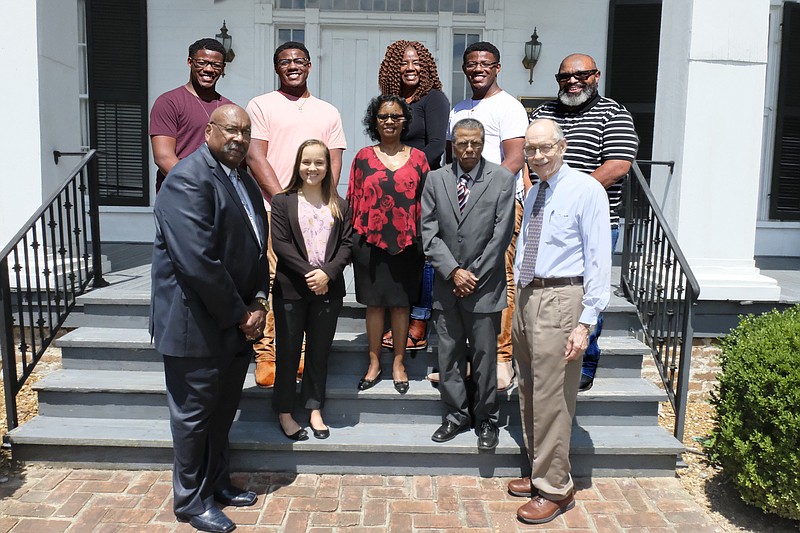Twenty-four-year-old coal miner Henry White was lynched in the fall of 1916 in Walker County.
White was accused of raping the daughter of a local justice of the peace, and, without evidence or due process, a mob convened to hang him.
His story may be unknown by many, but it won't be forgotten if a group of local residents has anything to say about it.
Walker County is on its way to becoming the first county in Northwest Georgia to have a Reconciliation Marker recognizing the segregation era of the South.
Emma Jones, a 2016 Ridgeland high school graduate and current senior at Furman University, was part of a research internship in Montgomery, Alabama, two years ago. One day after work, she visited the National Memorial for Peace and Justice established by the Equal Justice Initiative.
"I was really touched by all the work they had done and just thinking about how I could see the historical consequences of racism in America playing out," she said.
As she walked through the memorial, she found a plaque about White's lynching.
"We can't remedy our history," Jones said. "But we also, especially in the South, don't often recognize our history and try to reconcile with that within our communities."
As illustration, she notes that there are no related memorials in the local area currently.
" So I emailed the commissioner (Shannon Whitfield) trying to establish the need for this reconciliation in our county," she said. "It was just crazy to hear and read about something like [White's lynching] happening not actually that long ago."
More than 100 years after White's death, in late February 2020, the U.S. House passed the Emmett Till Antilynching Act which makes lynching a federal hate crime.
Through word of mouth, Jones was eventually connected with Walker County Historical Society President David Boyle and Beverly Foster, president of the Walker County African American Historical and Alumni Association. They formed the Reconciliation, Peace and Justice Memorial Task Force, which now has 11 members, Jones said.
Last October, the task force partnered with the Equal Justice Initiative and received a roughly $3,000 grant for the marker, which will be dedicated in July.
One side of the marker will touch on the history of the four-county Lookout Mountain Judicial Circuit which includes Catoosa, Walker, Dade and Chattooga, and the other will share White's story. Boyle said that at one point or another, all four counties were once Walker.
"Historically, those counties have all moved back and forth," he said, adding that they are now typically lumped together for state services and in terms of the region.
The Equal Justice Initiative also provided additional funding for local scholarships open to high school students at LaFayette, Gordon Lee and Ridgeland High schools, Jones said.
The WCAAHAA is sponsoring two additional scholarships for a LaFayette High School student and a Ridgeland High School student of African American descent to interview an African American who integrated Walker County Schools between 1965 and 1970.
Email Sabrina Bodon at sbodon@timesfreepress.com
